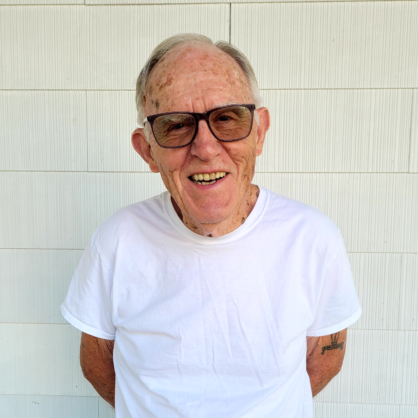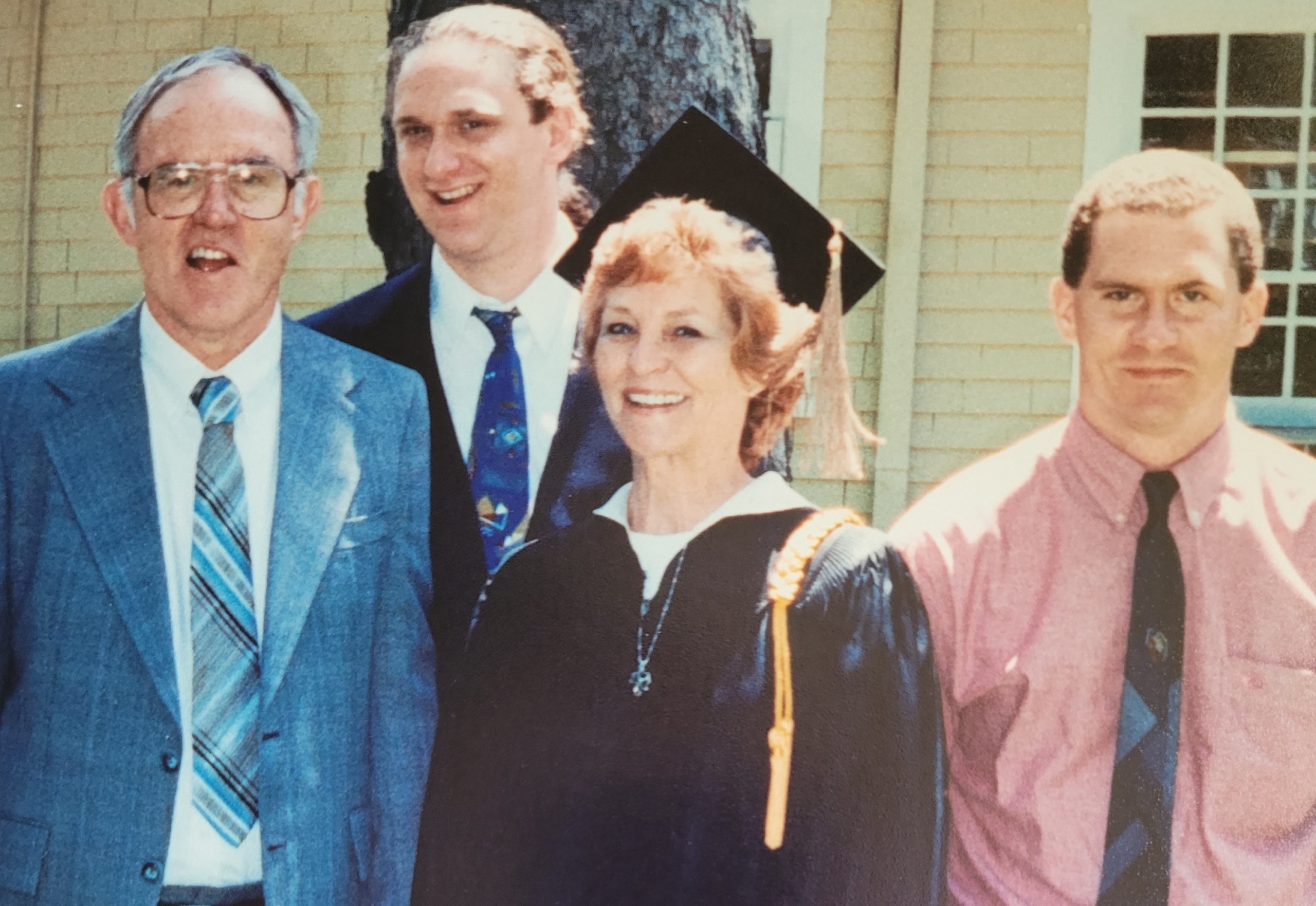From Patient, to Survivor, to Caregiver

I never imagined I would lose my wife to the same disease I survived.
I was diagnosed with pancreatic cancer in 2004, when I was just 66. I threw up and just didn’t feel right, and when my doctor felt my abdomen, he immediately sent me for bloodwork and a CT scan. I was told I had pancreatitis, an inflammation of the pancreas—just like one of my sons and my younger brother had—until further testing revealed I had pancreatic cancer. My family tried to hide how serious my diagnosis was; however, for the first time in my life, I knew I wasn’t invincible. I had already survived a tour of duty in the Air Force during the Cold War, but could I survive this frightening, life-threatening diagnosis?
Luckily, I was a candidate for the Whipple procedure, which gave me the best chance for long-term survival. During the procedure, my surgeon successfully removed 40% of my pancreas, including the entire tumor. I returned to work as an airplane engineer at Boeing two months later. I was so fortunate my cancer was caught early, and I didn’t need follow-up treatment. For the next five years, I underwent periodic CT scans and blood tests, which consistently showed no evidence of disease. At the five-year mark in 2009, my doctor told me I didn’t need to come back, and I was overjoyed!
However, my joy that my pancreatic cancer journey was behind me was replaced with the most gut-wrenching, devastating pain. My wife Wanda, the love of my life, was diagnosed with pancreatic cancer in 2014, when she was 72. I’ll never forget the grief I felt when I took her to the same oncologist who had treated me. He was surprised to see me and jokingly said, “I told you not to come back anymore.” This time, however, I was there for my wife.
Like me, Wanda underwent a Whipple surgery, but because her entire tumor couldn’t be removed and the cancer had metastasized, she needed radiation and chemotherapy. Being a caregiver was a 24/7 job, and since I had retired, I took care of Wanda completely on my own. I accompanied her to her chemotherapy and radiation sessions, handled all of the house chores and tracked her medications. I’d sometimes go to the supermarket in the middle of the night while she was sleeping, just so I’d be home when she woke up. Our enduring love and the unbreakable bond that grew over 55 years of marriage sustained me.
Wanda passed away 14 months after she was diagnosed. While I miss her terribly, I know we were blessed. I try to focus on the wonderful life we had built together, filled with so many happy memories since that first night we met in Madison, WI when I was in the Air Force. Now, I try to focus on activities I enjoy, like tending to my garden, taking walks and fixing things (even a lawn mower!).
While I was in the hospital recovering from my Whipple, I saw a Lustgarten Foundation PSA on television. Then in 2014, following Wanda’s diagnosis, I started attending the St. Louis Walk for Research near my home, and I have even participated in the ribbon-cutting ceremony, proudly wearing my Lustgarten SURVIVOR hat.
I have donated to the Foundation every year since 2014, in memory of Wanda, because I don’t want anyone to go through the agony of losing someone they love to pancreatic cancer and the fear of being diagnosed with the disease themselves. I know research being conducted by the Lustgarten Foundation is incredibly important to finding a cure. Research and treatments weren’t able to cure my wife or save her life, but if research could stop someone else’s mom, wife, family member or friend from getting pancreatic cancer, then that would be Wanda’s legacy.

